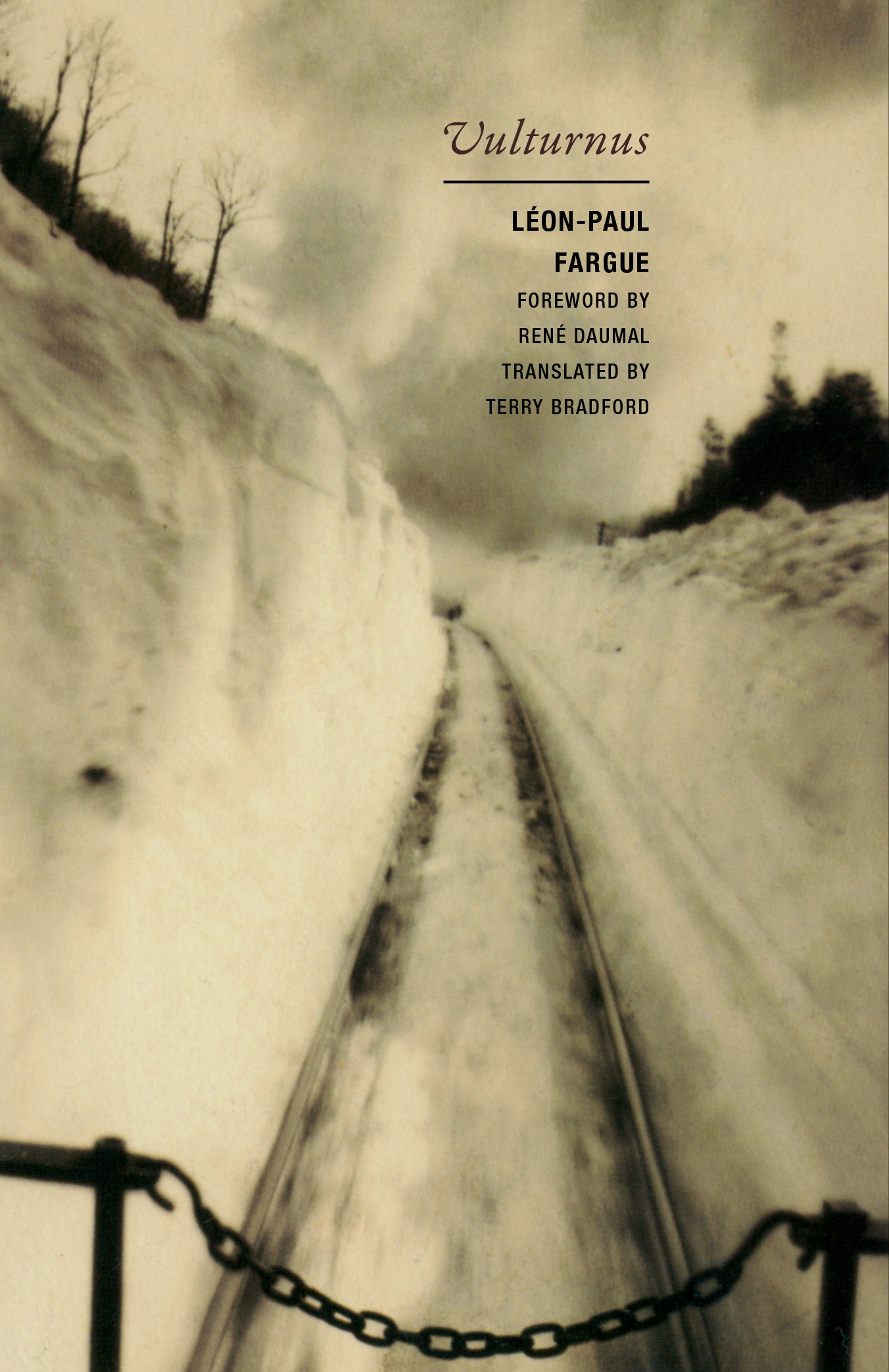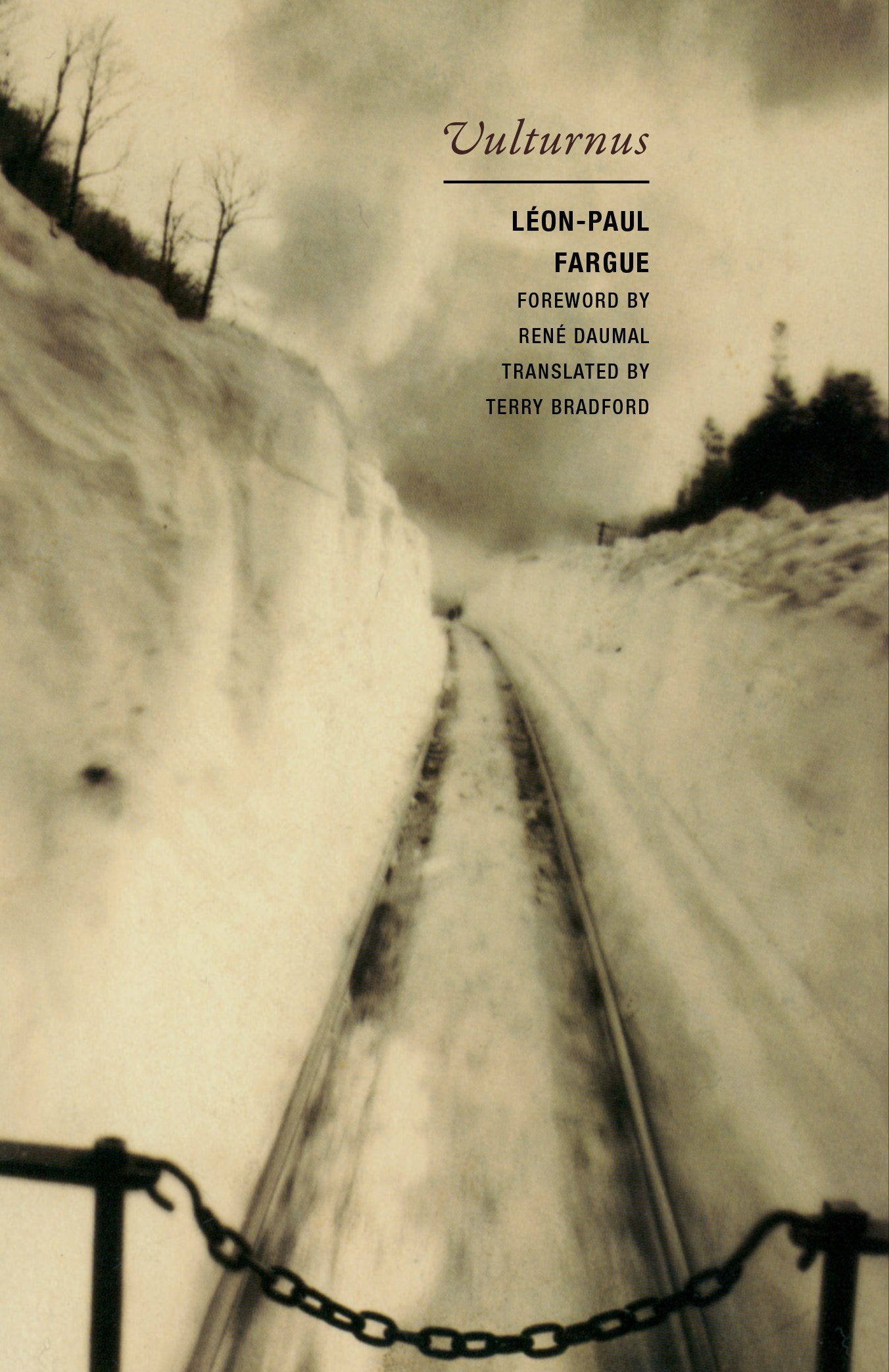Vulturnus
Vulturnus
Léon-Paul Fargue
Couldn't load pickup availability
Foreword by René Daumal / Translated by Terry Bradford / April 2024 / 4.5 x 7, 88 pp. / 978-1-939663-92-4
When published in 1928, Vulturnus represented a new direction in Léon-Paul Fargue’s writing: a shift from the lyrical post-Symbolist melancholy of his early poetry to something more grandiose, dynamic, and cosmic. A long prose poem, for lack of a better term, but one that weaves together philosophical dialogue, metaphysical meditation, and mournful reminiscence delivered in a language that spirals into scientific terminology and Rabelaisian neologism.
Jolted into a nightmare aboard a long-distance train journey, the author finds himself alone yet not alone, his mind pinned like an insect, as he sets off on a journey that takes him from his hometown to other existences, accompanied by the fanfare of the planets and two companions—Pierre Pellegrin and Joseph Aussudre—who guide him as Virgil did Dante, though not through hell, but to a sketched-out terrestrial paradise in quest of a moment of eternity: a syphilis of the ether, “one foot godward, two steps brute.”
This first English translation finally introduces an essential yet underrecognized twentieth-century voice and includes an essay on the text by René Daumal, who declares that “Vulturnus suffocates me with its obviousness … I see behind Fargue the great frame of Doctor Faustroll.”
“Vulturnus is an astonishing book.”—Paul Valéry
“A rollicking interplanetary poem.”—Eugene Jolas
Léon-Paul Fargue (1876–1947) was the archetypal poet of Paris, with ties to everyone from Alfred Jarry and Erik Satie to Colette and Maurice Ravel. His work was admired by Rilke, Joyce, and Walter Benjamin. Though his work spanned and was sometimes associated with various literary movements, a bridge of sorts from symbolism to surrealism (though he was opposed to the latter), he kept to his own path throughout his life: a night wanderer who turned his perambulations through Paris into a unique poetry and prose.
“The greatest living poet in France.”—Walter Benjamin
“One of our greatest poets.”—Rainer Maria Rilke
“Fargue taught us to sublimate the life of everyday and make the highest poetry out of it.”—Max Jacob


